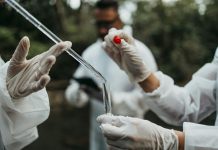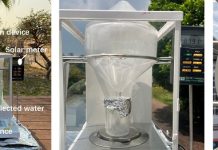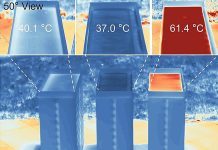
In a new study from Okayama University in Japan, researchers found common chemicals in paints and plastics can cause breast tumor growth.
Photoinitiators are chemicals that release reactive molecules in response to UV radiation. Given these properties, photoinitiators are used in a wide range of products, including plastics, paints, inks, and adhesives.
As a result, photoinitiators are present in several objects of everyday use as well as in medical products and instruments such as dental fillers and containers.
Recently, studies have demonstrated several health hazards linked to photoinitiators, raising alarms about their safety.
In particular, the presence of these compounds in clinical instruments, routinely used for treating high-risk individuals such as cancer patients, has become a major cause for concern.
Previous studies have shown that three photoinitiators commonly found in plastics and paints—1-HCHPK, MBB, and MTMP—show estrogen-like effects on cultured breast cancer cells, increasing their proliferation.
In the study, the team examined how exposure to 1-HCHPK, MBB, and MTMP affected the growth of transplanted breast cancer tumors in mice.
They found that all these compounds caused a faster increase in the growth of breast tumors, within 13 weeks of treatment.
This study shows that in addition to promoting the proliferation of breast cancer cells in culture, these photoinitiators also increase the growth of breast tumors in animals.
This implies that they could also potentially hasten disease progression in breast cancer patients.
To understand the mechanism underlying these breast tumor-promoting effects, the team pre-treated the mice with tamoxifen—a compound that prevents estrogen or estrogen-like molecules from affecting cellular processes.
They found that tamoxifen pretreatment decreased the toxic effects of the photoinitiators, indicating that this toxicity was mediated by estrogen receptors.
Together, the results showed that 1-HCHPK, MBB, and MTMP have estrogen-like activity and could thus act as hormonal disruptions.
Given the important role of estrogen in regulating reproductive function in both men and women, such disruptions could affect not only patients with breast cancer, but also healthy people.
If you care about breast cancer, please read studies about doing this can increase death risk in breast cancer and findings of lower dose of this drug can reduce breast cancer risk with less side effect.
For more information about breast cancer and your health, please see recent studies about this common beverage may increase death risk in breast cancer and results showing that as seasons change, so should diet for breast cancer survivors.
The study is published in Current Research in Toxicology. One author of the study is Dr. Yoichi Kawasaki.
Copyright © 2021 Knowridge Science Report. All rights reserved.



